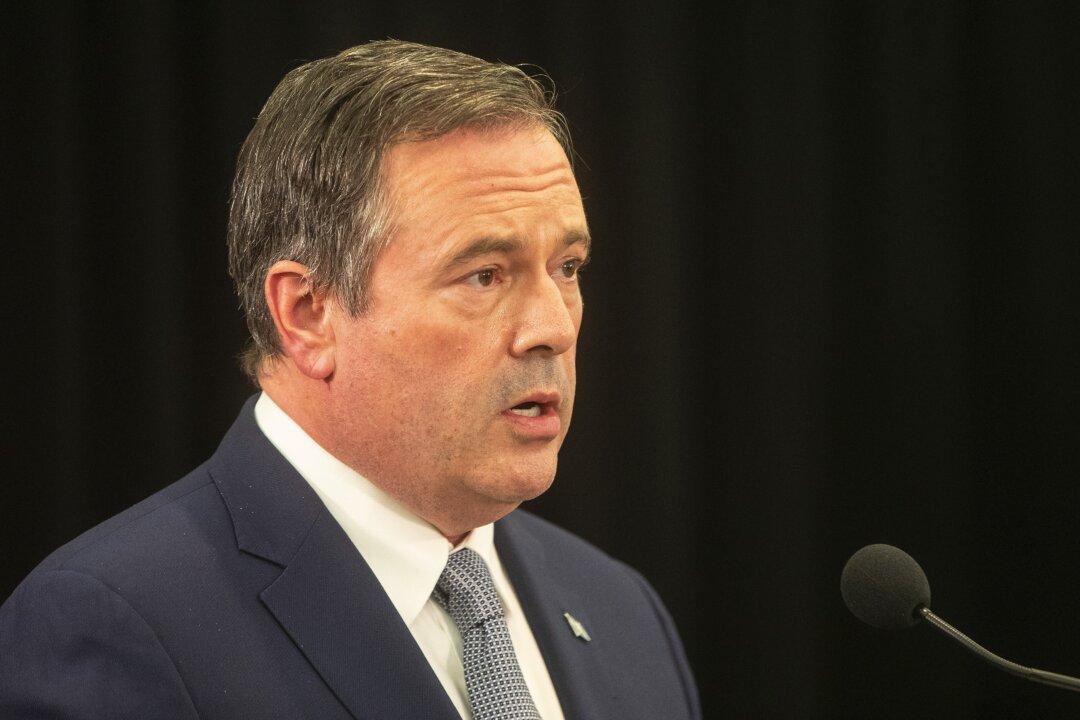Alberta Premier Jason Kenney has written to Prime Minister Justin Trudeau to voice opposition to the government’s use of the Emergencies Act to deal with the protesters in Ottawa, a move he said is “heavy-handed” and could do “irreparable harm” to Canadian democracy.
In the letter, which Kenney posted on Twitter on Feb. 18, he called for an end to the federal government’s “pointless” COVID-19 vaccine mandate and travel restrictions imposed on truck drivers crossing back into Canada from the United States starting Jan. 15.





